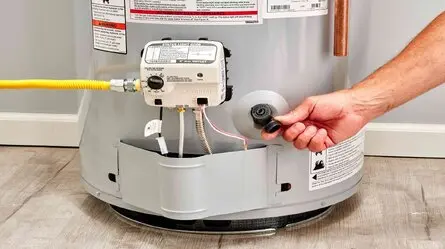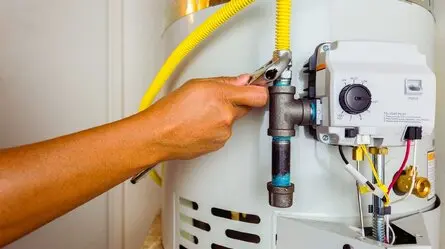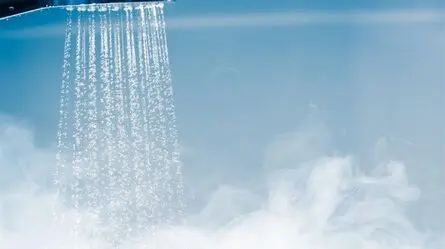Installing a hot water system at home is essential to avoid chilly surprises during early winter mornings!
Along with providing hot water on demand, keeping your gas water heating system in good shape can be a boon for saving energy. This not only helps trim down your water and utility bills but also cuts back on greenhouse emissions. It’s wise to service your hot water systems every five years, though consulting your instruction manual for specifics is a good move.
We understand—hot water systems can seem a bit daunting. And while it’s true that beginners should tread carefully and preferably under expert guidance, maintaining your existing hot water system can actually be quite manageable. Today, we’ll walk you through some no-fuss methods to get it right!
How To Maintain Your Hot Water System
Before getting started, remember the two main factors that you must consider to conduct the maintenance procedure successfully:
- Sacrificial anode
- Temperature and pressure relief valve (TPR valve)
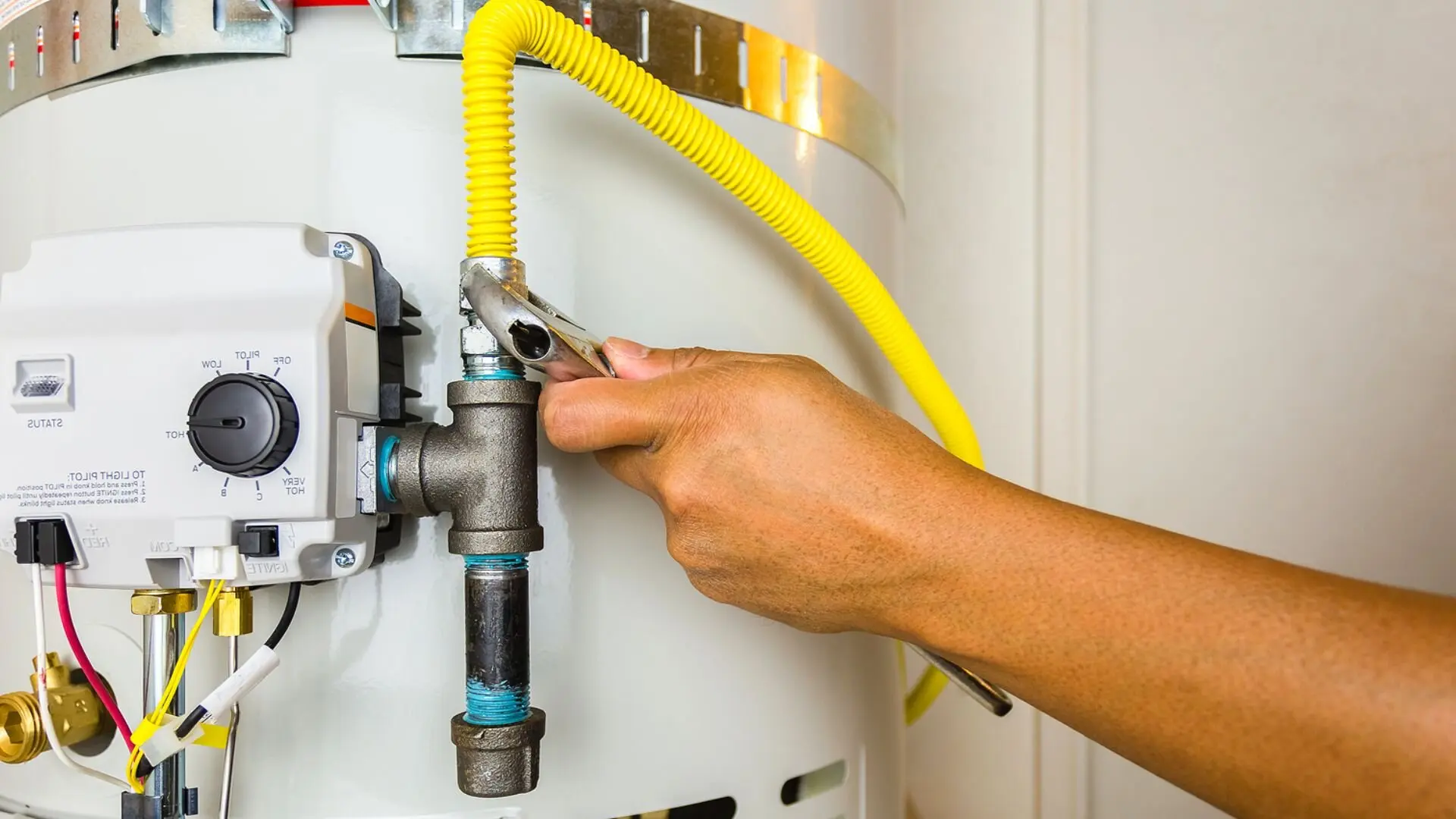
What Is A Sacrificial Anode?
Most tank-based gas water heating systems feature a “sacrificial anode,” a metal (usually magnesium or aluminium) rod with a zinc coating hanging inside the hot water tank. Its primary function is to attract impurities that may cause reactions and corrosion.
It’s quite interesting: because the rod is metallic, it rusts and deteriorates upon contact with impurities, essentially “sacrificing” itself to keep the hot water tank safe! That’s why it’s crucial to replace the sacrificial anode regularly to maintain your system’s health.
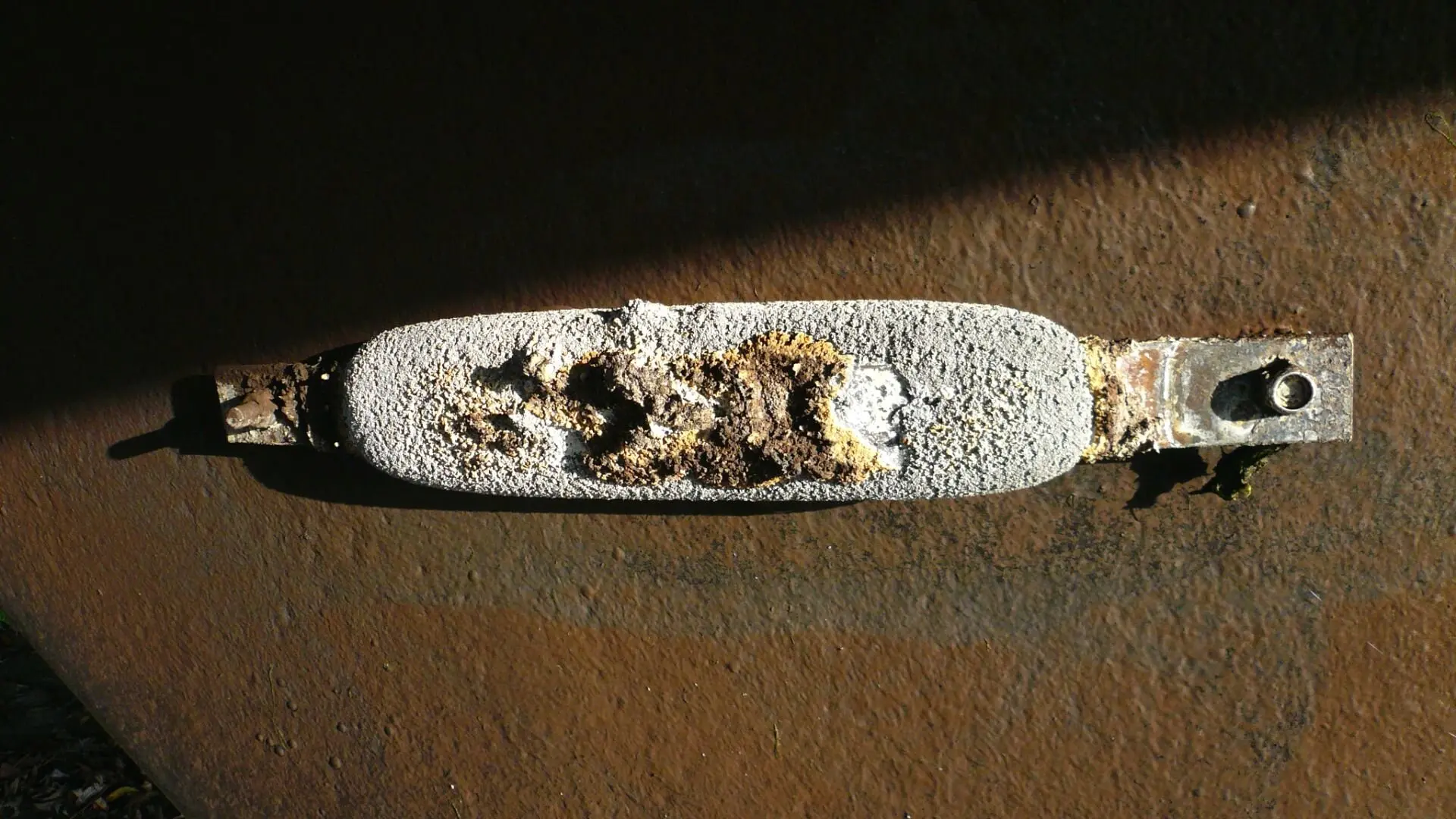
When Should You Replace The Sacrificial Anode?
Depending on the type of water and the impurities present, you must change the sacrificial anode every five years. Doing so may even extend the service period of the hot water system by a solid 5-10 years.
Replacing The Sacrificial Anode
Before we dive into the procedure, here’s a heads-up: replacing a sacrificial anode is best left to the pros. With scalding water and steam involved and connections to electricity or gas, it’s a tricky business that can quickly turn perilous. So, let the professionals take it from here.
The cost of hiring a licensed plumber is minimal, considering the energy bills resulting from using an inefficient heater or replacing one. Hence, hiring a qualified plumber to service the hot water system and replace the sacrificial anode as and when required is best.
What Are Temperature And Pressure Relief (TPR) Valves?
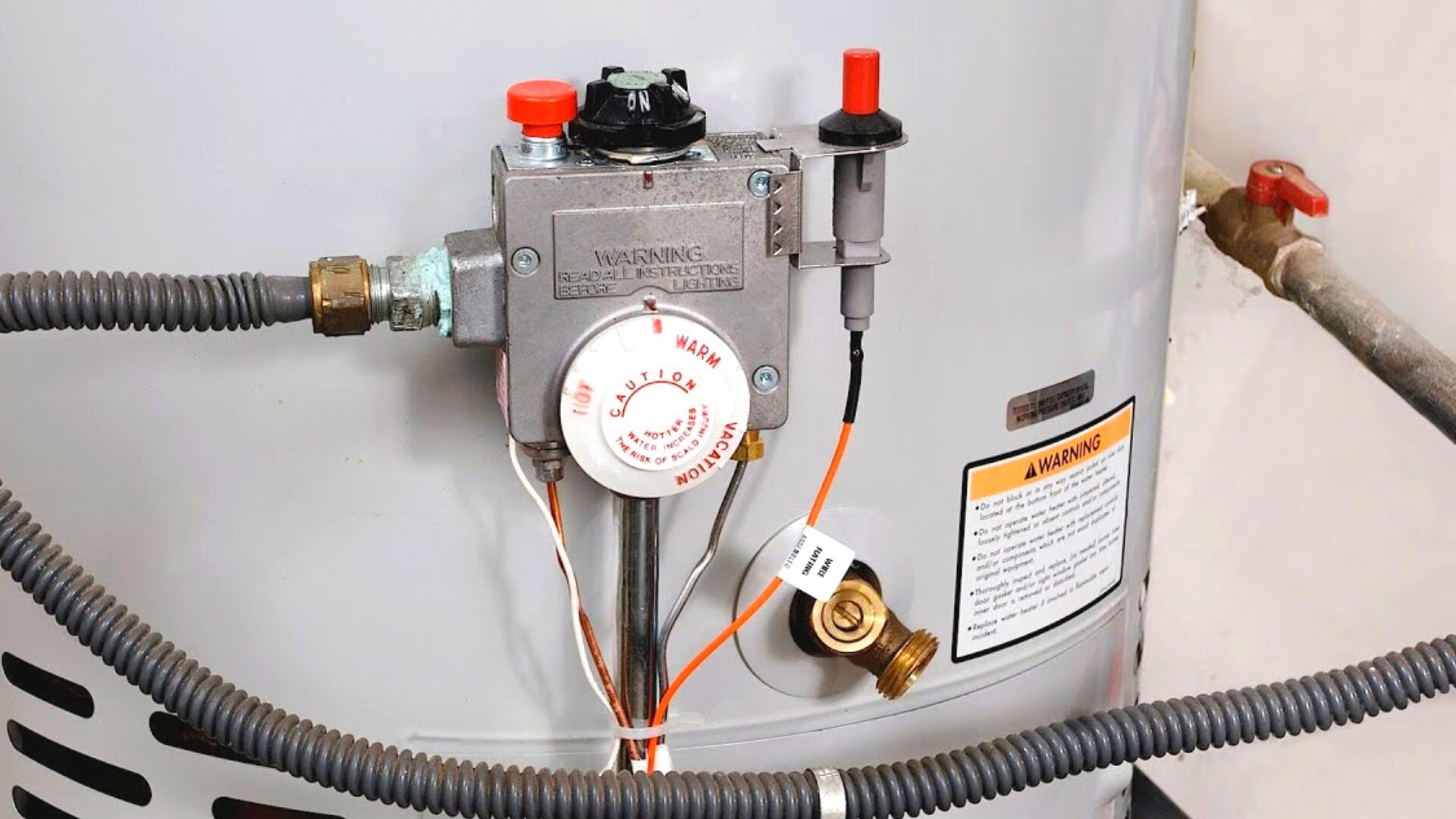
Also known as TPR or T&P valves, they “vent” out hot water when the temperature and pressure in the tank system get too high. This is done to prevent explosion, thereby acting as a safety measure.
As such, these valves must be checked and replaced accordingly to prevent your hot water system from malfunctioning.
How To Test The Temperature And Pressure Relief Valve?
This process is relatively easy, and you can probably do it yourself. However, wear protective gear or covered clothes like long pants, gloves, and shoes. The outlet pipe will release hot water while testing the TPR valve, so even though the process is easy enough for amateurs, you must stay cautious not to hurt yourself.
Here’s a step-wise process of testing the TPR valve:
- Ensure that the surface beneath the outlet pipe is free from obstruction, and stand as far as possible from the end of the pipe
- Try moving the handle on the TPR valve, but don’t force it
- If the handle does not move, it’s best to replace it
- If you lift the handle, the outlet pipe will release hot water.
- The water should stop turning the valve to its “close” position; the TPR valve must be replaced.
How Often Should You Check And Replace TPR Valves?
Generally, TPR valves should be tested once every six months. However, it is best to consult the manufacturer about it.
As for replacements, doing this every two years is a smart idea since TPR valves only have a limited service life. It’s also a good idea to check with the manufacturer on the best timeline for replacing these valves.
Check The Thermostat
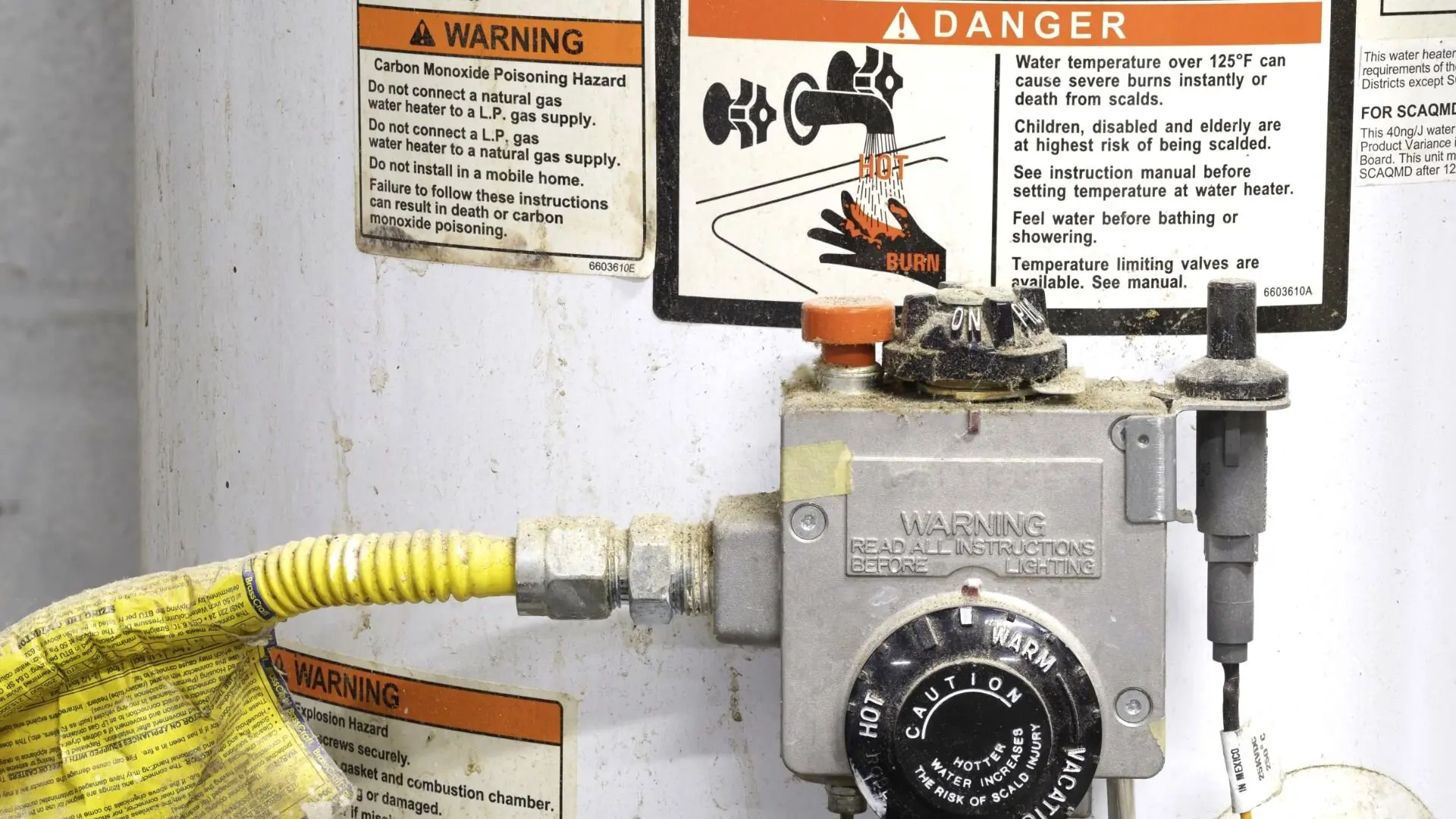
Besides checking the sacrificial anode and the TPR valves, noting the temperature on the thermostat can give you a fair idea about the condition of your gas hot water unit. Ideally, the water heater should maintain a temperature of 60°C to avoid scalding and high energy bills.
So, if the water coming from the faucets is not the ideal temperature mentioned above, chances are your water heater is malfunctioning. Alternatively, your water heater may have built-up sediment or uninsulated parts that may lose heat.
When Should You Call A Plumber For Hot Water System Maintenance
1. Smell Of Gas
If you catch a whiff of a gas-like smell, it’s time to act fast! Turn off any gas sources and extinguish any flames if it’s safe to do so. Avoid touching electric switches or devices, and stay in a safe spot. Then, call a plumber or gas fitter right away.
2. Temperature Fluctuations
In the case of storage tank systems, gradual temperature fluctuations can be expected, but not in a tankless continuous flow system. Additionally, constant leaking and pressure release from the valve/pipe are not ideal for tank systems.
So, in all these cases, you must call a professional and licensed plumber to do the job.
Ensure Optimal Performance: Maintaining Gas Hot Water Systems
It is strange how a malfunctioning gas hot water system (or any device or fixture) goes out at the most inconvenient times! So, regular servicing and maintenance are ways to avoid unpleasant surprises in the shower.
Whether you gradually notice the heater not heating water adequately or suddenly hear strange knocking sounds from the heater - call Woolf Plumbing & Gas. We have a team of experienced and licensed plumbers in Perth equipped with the latest tools to offer you five-star services. Plus, we follow an upfront pricing policy with no call-out fee.
So, book an appointment with Woolf Plumbing & Gas and join the pack today!


